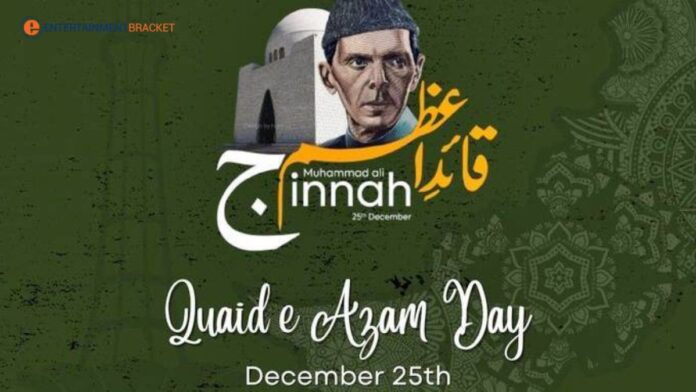Today, on Monday, is Quaid-i-Azam Muhammad Ali Jinnah’s 147th birthday, which is being celebrate across Pakistan with the customary zest and fervor.
Biography of Quaid E Azam With His Rare & Unseen Pictures
Several state-level events are schedule today to highlight Jinnah’s lifetime political battle and his guiding ideals of discipline, unity, and faith as the country observes a public holiday.
Special prayers were said at daw on December 25 for the safety, development, and prosperity of the nation of South Asia. A ceremony to replace the guards at Quaid’s mausoleum in Karachi is done annually after the ritual.
Special events and programs will honor the life and legacy of Jinnah.
Pakistan’s president, Dr. Arif Alvi, and interim prime minister, Anwaar ul Haq Kakar, both paid heartfelt homage to Quaid-e-Azam Muhammad Ali Jinnah in their separate remarks, urging the country to emulate Jinnah in order to become a powerful and wealthy nation.
Muhammad Ali Jinnah,
Pakistan’s founding father, Muhammad Ali Jinnah, was born in a prosperous family in Karachi on December 25, 1876, and held the position of first governor general following the country’s independence in 1947.
A multifaceted luminary, renowned lawyer, seasone politician, visionary statesman, and most importantly, Pakistan’s visionary creator, Jinnah is revere by Pakistanis for his remarkable life story, which elevates him to the status of the subcontinent’s greatest statesman.
From 1913 till the historic day of Pakistan’s independence on August 14, 1947, Jinnah witnessed him leading the All-India Muslim League. He thereafter became the first Governor-General of Pakistan, a post he occupied until his tragic death on September 11, 1948.
His earliest efforts to promote Hindu-Muslim unity, which resulted in the crucial 1916 Lucknow Pact between the Muslim League and the Indian National Congress, marked his rise to prominence within the Indian political scene. Notably, Jinnah was a key figure in the All India Home Rule League as well.
Jinnah put up a comprehensive fourteen-point plan of constitutional reform with unflinching determination, with the goal of securing Muslim political rights inside an independent India.
But as time went on, his changing perspective came to endorse the Two-Nation Theory—expressed in the Lahore Resolution—which called for the establishment of a distinct Muslim state. His ideas were well receive by the Muslim electorate, as seen by the Muslim League’s 1946 election victory.
Jinnah took decisive action in response to the failure of the Cabinet Mission Plan, calling for Direct Action Day, which unfortunately sparked severe sectarian bloodshed between Muslims and Hindus in Calcutta. The Indian National Congress and the Muslim League’s standoff on power-sharing for a unified India ultimately resulted in the momentous decision for both Pakistan and India to become independent, with British approval of this enormous shift.
As the first Governor-General of Pakistan, he took on the difficult responsibility of laying the groundwork for the young nation, formulating national strategies, and supervising the resettlement of millions of Muslim migrants who had migrated from India in search of a better life.
Biography of Quaid E Azam With His Rare & Unseen Pictures
Only one year after Pakistan was freed from British colonial rule, at the age of 71, Jinnah passed away in September 1948, capping an extraordinary life devoted to pursuing his goal. In Pakistan, his memory continues to inspire deep devotion, despite differing views regarding him in India.
Muhammad Ali Jinnah is still without a doubt Pakistan’s greatest leader, according to his biographer Stanley Wolpert. He helped a country find its path and earned a unique and beloved position in history.

